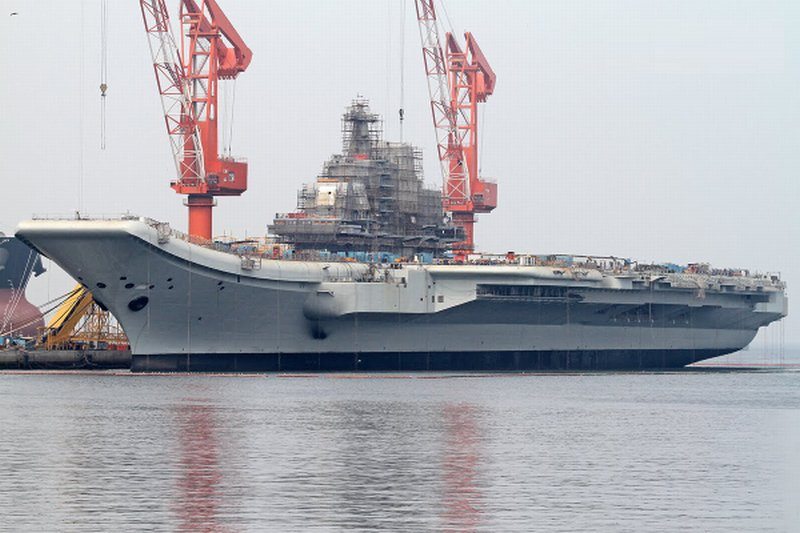It has been more than twenty years since the U.S. Navy had a major naval vessel as a target in the event of war. In the 1970s and 1980s the Soviet Navy produced a series of major surface combatants to tempt the U.S. Navy. There were large destroyers, a number of cruiser classes and even the Kirov class of nuclear-powered battlecruisers. Then there were several helicopter and aircraft carriers of the Moskva, Kiev and Tbilisi/Admiral Kuznetsov classes. At its peak, the Soviet Navy deployed more than sixty large surface combatants. Today that number has been reduced to around 28 large surface combatants with no aircraft carriers.
Now China is kindly offering the U.S. Navy the opportunity to practice at least some elements of a fleet-on-fleet engagement. According to reports from WestPAC, China will send its first aircraft carrier out for sea trials next week. It is also an old ship, the Soviet-era Varyag which was under construction when the “Evil Empire” collapsed twenty years ago. It sat partly completed at dockside for years before the PLA Navy made a bid for it. There it sat for additional years as the original construction yard hunted high and low for the construction plans and Beijing and Moscow dickered over price and who would do the remaining work to finish out the vessel. Finally, in 2000 it was towed to the Chinese port of Dalian where it has been undergoing reconstruction and outfitting ever since.
Apparently, the ex-Varyag, now reportedly named the Shi Lang, is ready for its coming out party. The Chinese carrier is a big ship, over 900 feet. It will deploy with conventional take-off and landing aircraft. The main candidate for this role is the J-15, modeled on the Russian Sukhoi Su-33 carrier-based fighter. The J-15 may also include avionics and equipment from the J-11B multirole fighter program, which is based on Russia’s Su-27 fighter.
In addition there are reports that China is developing the J-18 Red Eagle vertical/short-takeoff-and-landing (VSTOL) fighter. Less clear is what the PLA is doing to develop the kind of support aircraft that are required in order to conduct competent air operations.
It appears that the PLA did not just buy an ex-Soviet era aircraft carrier but, more significantly, it has bought into a Soviet era vision of a rising world power requiring a blue water Navy. In the process, the Soviet Union wasted enormous resources creating naval forces that were virtually irrelevant both politically and militarily. China, like the Soviet Union/Russia is a continental power. Even with a growing economy Beijing will not have the resources to build both effective land and air force and a blue water navy.
Moreover, deploying an aircraft carrier even with a complement of strike aircraft is not the same thing as having an operationally effective carrier strike group. The PLA Navy will have to develop the capability to provide 360 degree air and missile defense, fleet ASW, underway replenishment and air/sea coordination. Where is the Chinese navy’s equivalent of the Aegis air/missile defense system, E-2D airborne surveillance and C2 or the Los Angeles class SSN?
The reality is that the U.S. Navy should welcome the Chinese effort to create its own blue water navy. The U.S. Navy has a seventy year history of being able to engage and destroy hostile surface fleets. The name Shi Lang could also be translated as “big fat target.”











